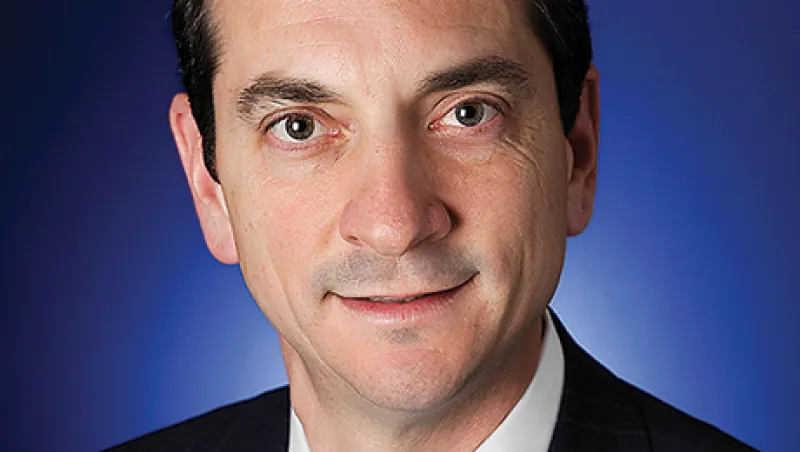A rower since his college days, Jason Haas sees parallels between that pursuit and his chosen profession. “Rowing is all about teamwork,” says Haas, 47, who has been Deutsche Bank’s New York–based head of health care investment banking for the Americas since 2013. “A successful crew must be synchronized, and that’s the key to success in banking too, pulling together resources from across the firm.”
Haas joined the bank in 2012 after 17 years at Goldman, Sachs & Co., where he launched a group to serve fast-growing and emerging specialty pharmaceutical companies. Deutsche enlisted him to help it catch up with his former employer and Bank of America Merrill Lynch, which took the top two spots for global and U.S. health care M&A deal volume in 2014, according to Dealogic. Last year Deutsche slipped five places to No. 12 in U.S. health care M&A, advising on $14.4 billion worth of deals, versus $209.8 billion for Goldman.
Since Haas arrived the firm has boosted its Americas health care team from some 35 bankers to about 50 and starred in several major deals as the sector undergoes a boom in mergers and acquisitions. In 2014 there were 938 health care M&A transactions worth a combined $308 billion announced worldwide, a record volume and a 57 percent surge over 2013. One driver is tax inversions that have seen big U.S. pharmaceuticals companies move their headquarters overseas after merging with foreign rivals.
Although specialty pharma deals tend to be relatively small, Haas and his team have been busy. They advised Malvern, Pennsylvania–based Endo Health Solutions, whose products include pain management drugs, on its $1.6 billion acquisition of Canada’s Paladin Labs; the merger, which closed in late 2013, resulted in an Irish domicile for the new company. Last summer Haas represented Auxilium Pharmaceuticals on a $300 million bid for Vancouver’s QLT that would have shifted Auxilium’s headquarters from Chesterbrook, Pennsylvania, to Canada. For Deutsche that led to something much bigger in December, when Auxilium dropped the QLT offer to entertain an unsolicited $2.3 billion bid by Endo. “These re-domiciling deals have given companies the platform to achieve global growth,” Haas says.
As an undergraduate at Colgate University in his home state of New York, Haas considered becoming a doctor, but he settled on finance, earning a degree in international relations and economics in 1989. Haas, who has always worked in New York, started out by joining Citibank’s credit training program; after completing an MBA at Columbia Business School, he moved to Goldman as an associate in 1995. He spent four years in corporate finance before setting up the specialty health care team in 1999.
Haas has seen several clients grow into multibillion-dollar companies, among them Rockaway, New Jersey–based drugmaker Warner Chilcott. He was at Goldman when the bank backed a failed 2004 bid by an investor consortium to take Warner private. In 2006, Haas belonged to the team that listed the company, which had since been acquired by a group that included J.P. Morgan Partners, on the Nasdaq Stock Market. Three years later he advised Procter & Gamble when it sold its pharmaceuticals business to Warner for $3.1 billion. In 2013, shortly after switching to Deutsche as a managing director, he advised Warner on its $8.5 billion acquisition by Dublin-based rival Actavis.
Outside his M&A work, Haas likes helping companies raise debt and equity. One transaction he’s especially proud of is the 2008 sale of Los Angeles–based American Pharmaceutical Partners to Germany’s Fresenius SE & Co. for $5 billion. It was the first health care deal struck using a contingent value right, a financial instrument that determines the price based on the new company’s projected financial results. By using this publicly tradable structure, which has since served as a blueprint for other health care mergers, American Pharmaceutical and Fresenius were able to bridge a big valuation gap.
A member of ?his local rowing club, Haas hopes to man the oars more in 2015 now that his high-school freshman son has taken up the sport. As for his Deutsche crew, he believes the bank, which hired two managing directors from Morgan Stanley last year to bolster its health care division, can hold its own against more-established U.S. rivals: “We’re growing our market share as health care has become an increasingly important sector in investment banking.”






